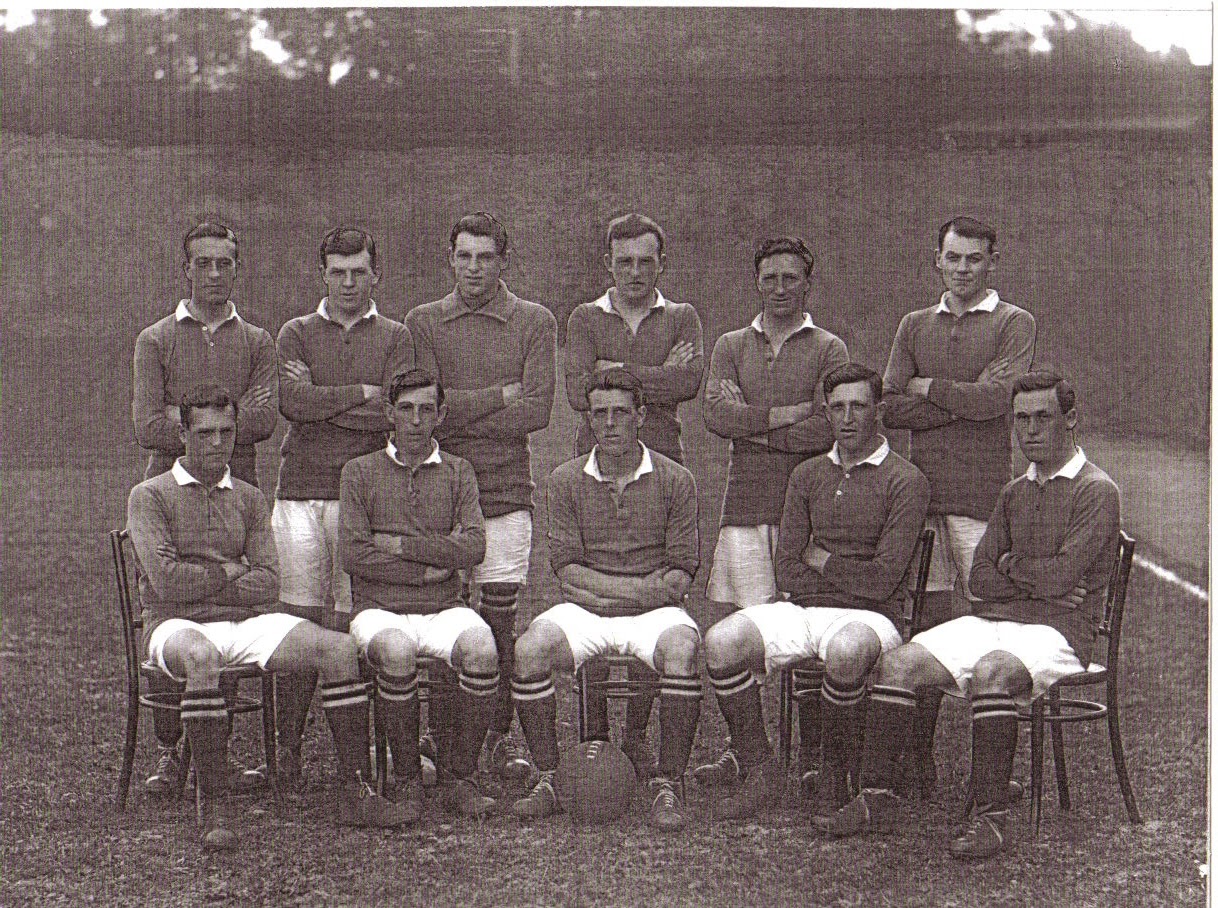Jock Drummond was not properly a Falkirk Bairn, but he was good enough for me, the family was living here by the time of the 1881 Census. he was originally from the Hillfoots. But it would seem he grew up in the town [so if it was up to me I would give him a passport]. Like many of the great players for Falkirk FC he seems to come out of nowhere, but this is more to to do with the lack of 2nd XI matches being reported, then, as now, in the local press.
In his time at Falkirk Jock spent a lot of time at left back, but I suspect this may be more to do do with the fact his partner would have been worse. He was a class above Stirlingshire football. He even extendended his range to play when needed, at Left-Half. In his memoirs [published in the Rangers Historian [a surprisingly un-bigoted publication]] he remembered learning under
Pat Murphy to play LB.
According to the Falkirk Herald, before he moved to Rangers [you must remember this was a time before the current nonsense] he was scouted & tempted by English clubs like Wolves, Preston etc, but he stayed in Scotland. But not because he was a hun, because he had a fine job as a Bank Clerk in Falkirk, and refused to leave the town, he would travel to the match on Saturday, but he would never leave the town.
After a long career with Rangers he returned to Falkirk, but not really as a player, but a director, well more as a director who would play when needed. He did not play much second time around, but must have been a great boon to the others about him.
John Drummond has a few things about him which will never go away, he was the first Falkirk player to play for Scotland: he is the first player known to have scored a goal from a Penalty Kick for the Club [Falkirk scored another two weeks before, but the scorer was not recorded], he is another who played before his 18th birthday.
When it came for him to eventually hang up his boots he was was only playing in goals [but still playing] he played for Falkirk FC in a post-season tour of 'the North' when he played against a Morayshire XI on the 7th May 1907 [this being the 20 years & 21 Days after the first time he turned out for that amateur team].
[I like this pic, aged 16 from the 2nd XI before he even played a First XI Match]
[Sorry about the quality, but, I was not there]
John Drummondb 13th April 1870, Alva, Stirlingshire
d 23rd January 1935, Falkirk, Stirlingshire
Debut – Saturday April 16th 1887 v Alloa Athletic (H) Friendly
Positions – Left-Back, Centre-Half, Left-Half, Right-Back
Representative Honours – Scotland v Ireland 1891/92, Stirlingshire v Linlithgowshire 1888/89, v Fife 1890/91, vForfarshire v 1890/91, 1891/92
Club Honours – Stirlingshire Cup W 1889/90, RU 1891/92, Falkirk District Charity Cup W 1889/90, 1891/92, RU1890/91, Falkirk Infirmary Shield W 1891/92, RU 1889/90, 1890/91
Scottish Cup Matches /Goals [12/-]
Scottish Qualifying Cup Matches/Goals [1/-]
Minor League Matches/Goals [11/1]
Minor Cup Matches/Goals [30/1]
Other Matches/Goals [87/4]
Known Career –
Falkirk [1886/87-1892/93], Rangers [1891/92-1903/04],
Falkirk [1904/05-1906/07]
Selected for the 1891/92 International Trials.
Played for Zingari v Falkirk Excelsior, Friendly at Tannery Pk, Falkirk, 28th April 1887Played for Falkirk Caledonians v Redding Athletic, Friendly at Redding, 5th May 1887Played for Redding Athletic v Vale of Avon, Friendly at Redding, 8th June 1887Played for Redding Athletic v Kilsyth Wanderers, Friendly at Garrell Garden Pk, Kilsyth, 10th September 1887Played for Falkirk District XI v Rangers Ibroxonians, Benefit Match at Brockville Pk, Falkirk, 11th June 1889Played for Dunblane 2nd XI v Falkirk 2nd XI, Friendly at Brockville Pk, Falkirk, 18th January 1890Played for King's Park v Hurlford, Friendly at Forthbank Pk, Stirling, 1st January 1891
Scored Falkirk's first recorded goal from a penalty kick, v Glasgow Wanderers (H) September 12th 1891, Scottish Federation
Cousin of George Drummond. [Falkirk 1899/00-1901/02]
Made his League debut for Falkirk 17 Years 126 Days after his Falkirk 1st XI debut














